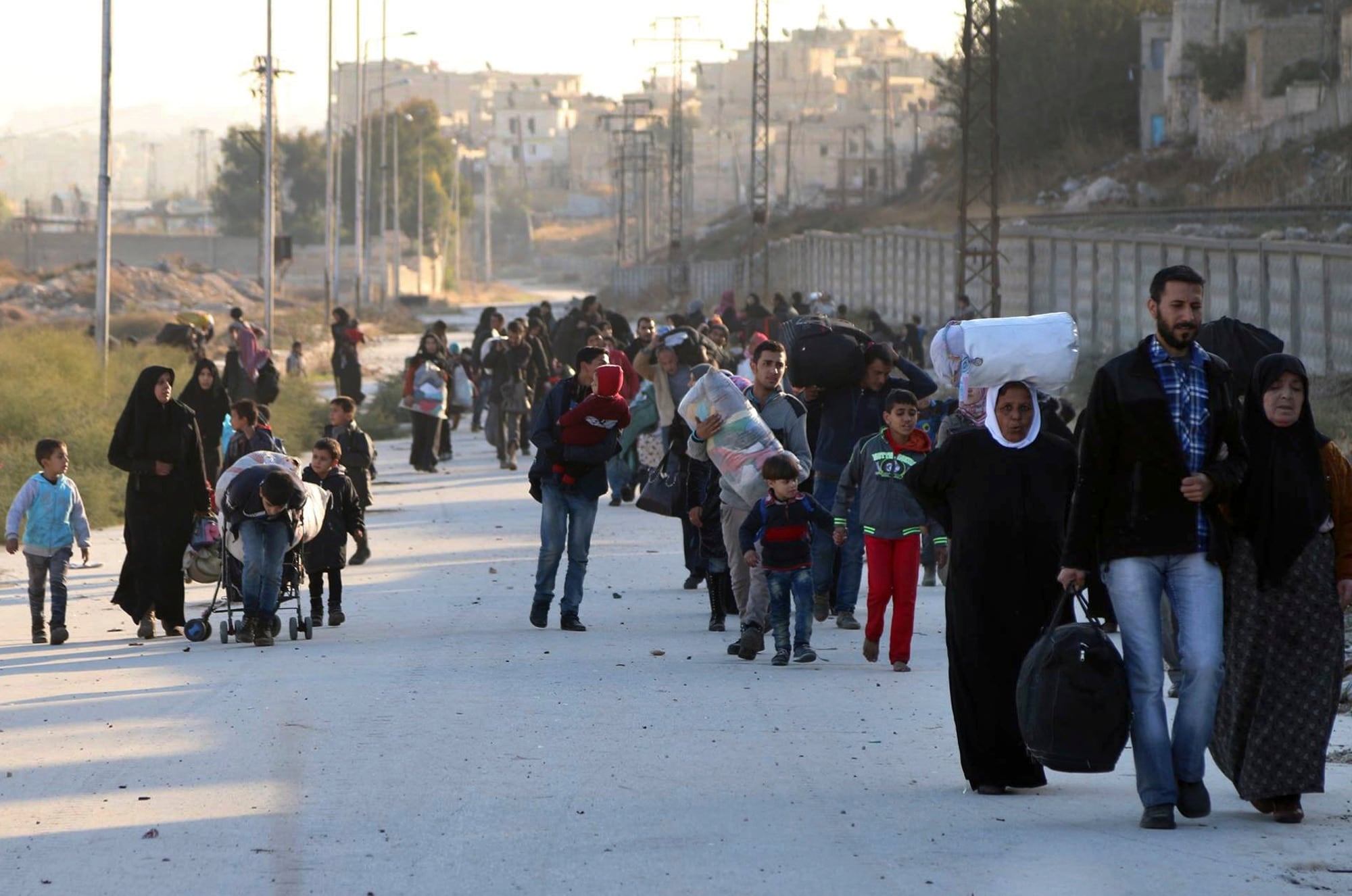WASHINGTON — With Syria's Russian-backed military appearing close to seizing total control of Aleppo, U.S. officials concede they have little to no chance of securing a diplomatic breakthrough to halt the 5½-year civil war in President Barack Obama's last weeks in office. Given Donald Trump's promises of closer cooperation with Russia, the U.S. has lost what limited leverage it had.
Until recently, top U.S. officials still dangled the threat of reviving any of the various Syria plans Obama long had rejected, from a no-fly zone over opposition-held territory and more weapons to the rebels to sanctions on Moscow for aiding Syrian President Bashar Assad. Such talk has disappeared since Trump's surprise election victory three weeks ago.
And the sense of U.S. powerlessness is so profound right now that even Obama's Plan A — diplomatic efforts with Russia — doesn't seem to be taking on added urgency. Discussions in Geneva involving senior diplomats are occurring regularly, though not daily. Secretary of State John Kerry and Russian Foreign Minister Sergey Lavrov have been talking by telephone a couple of times each week. The specter of the fall of Aleppo, Syria's largest city, isn't changing the American approach.
"The United States continues to work diplomatically," White House press secretary Josh Earnest said Monday, crediting Kerry with redoubling "efforts to try to bring about that kind of solution because we know that it's just impossible to impose a military solution."
Blocks away in Washington, State Department spokesman John Kirby told reporters: "To suggest ... that there's some sort of frantic or frenetic last-ditch efforts here in the remaining weeks that he has in office just simply doesn't comport with the facts."
Meanwhile, Syria's Aleppo offensive is making headway. On Monday, pro-government forces seized parts of the city that had been rebel-held for four years. An opposition retreat from its last strongholds in Aleppo would give Assad control of Syria's four largest cities and coastal region, and could prove a devastating psychological blow to a rebellion that has been on the defensive since Russia intervened to help Assad 14 months ago.
The picture of Syria is dramatically different from August 2011, when Obama first called on Assad to leave power and a chorus of officials spent years predicting his rapid ouster. Assad remains firmly in place. And the war has now killed as many as a half-million people, contributed to Europe's worst refugee crisis since World War II and allowed the Islamic State to emerge as a worldwide terror threat.
The rebels' deteriorating position in Aleppo and the worsening humanitarian catastrophe were widely foreseen by American officials after Syria and Russia pulled out of a U.S.-Russian cease-fire in September to root out what they said were al-Qaida-linked and other terrorist forces. Unable to muster any serious military threat, Washington responded with fierce rhetorical denunciations and accusations of war crimes and crimes against humanity.
But it offered no action of consequence for Damascus or its military supporters, which includes Iran.
Last month, Kerry even suggested the U.S. was resigned to Aleppo's loss.
"Now, some people ask what happens to Aleppo if it were to fall," he said in London. "Well, the Russians should understand, and Assad needs to understand, that that does not end the war." Taking the city, he said, "will not change the fundamental equation in this war because other countries will continue to support opposition, and they will continue to create more terrorists, and Syria will be the victim in the end as well as the region."

In this Sunday, Nov. 27, 2016, photo provided by the Rumaf, a Syrian Kurdish activist group, which has been authenticated based on its contents and other AP reporting, shows people fleeing rebel-held eastern neighborhoods of Aleppo into the Sheikh Maqsoud area that is controlled by Kurdish fighters, Syria.
Photo Credit: The Rumaf via AP
U.S. officials stressed that they haven't given up, pointing to the negotiations with Russia and several other countries directly or indirectly involved in Syria's war as evidence of continued diplomatic engagement. The negotiations have made little progress, conceded the officials, who weren't authorized to speak publicly on the discussions and demanded anonymity.
Illustrating the deadlock, they said Washington and Moscow have spent several negotiating sessions trying only to agree on the number of eastern Aleppo fighters belonging to the al-Qaida-linked Jabhat Fatah al-Sham, formerly known as the Nusra Front. The goal is to separate them from U.S.-backed rebels. But how the U.S. and Russia might accomplish that after the number of fighters is determined remains entirely unclear, the officials said.
At the heart of the impasse, U.S. officials involved in the diplomacy believe, is Trump's campaign talk about working with Russia in Syria and ending the limited support the United States has provided for the rebels fighting Assad.
Before the election, officials had hoped to use the looming reality of a Hillary Clinton presidency and her talk of a more hawkish Syria policy to extract some Russian concessions that might lead to a cease-fire and talks on a post-Assad future for Syria.
But with Trump's presidency less than eight weeks away, the Russians can wait out the clock on Obama and see if a better deal awaits them.



